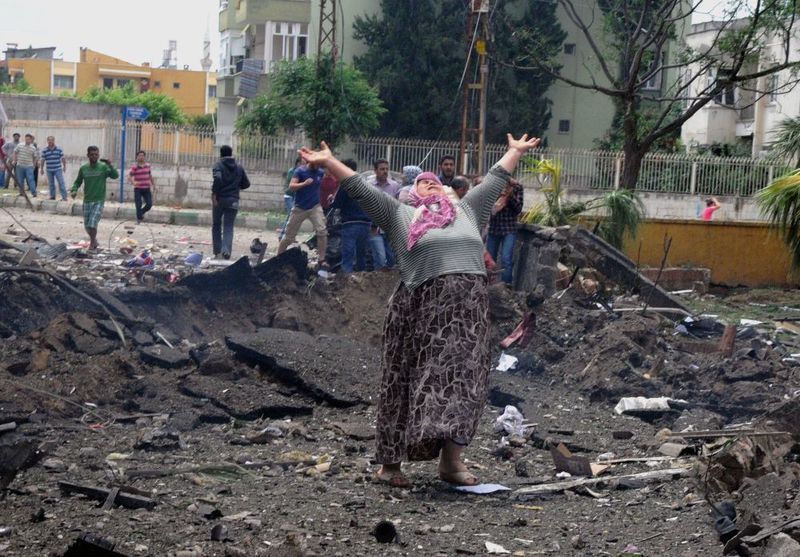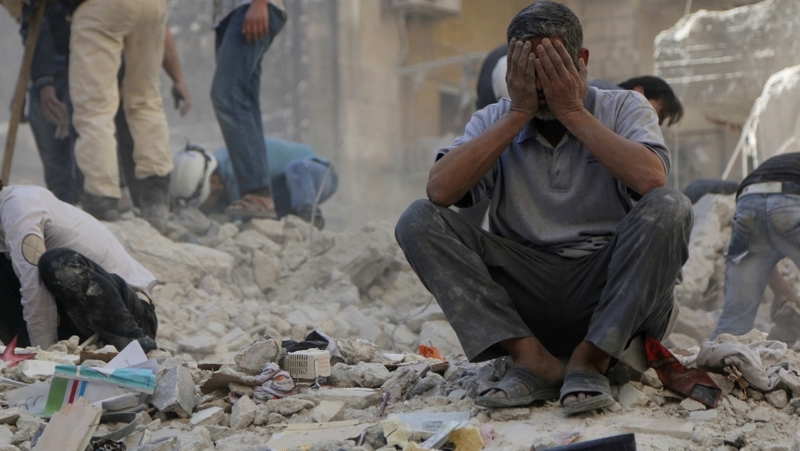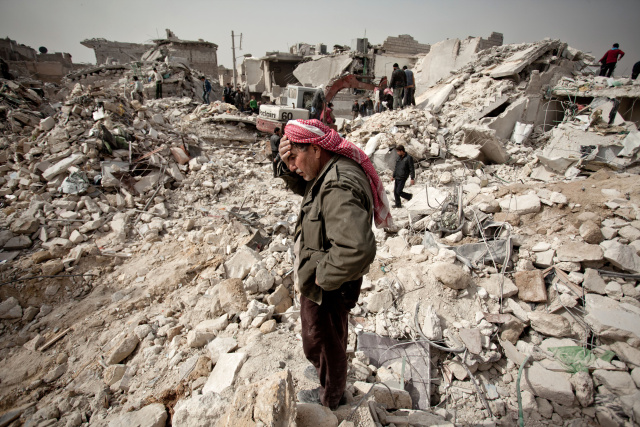U.S. rejects Syrian request that U.N. inspectors stay longer, possibly delaying military strike
Washington Post
28 AUGUST, 2013
The Obama administration appeared Wednesday to be forging ahead with preparations to attack Syria. It dismissed a Syrian request to extend chemical weapons inspections there as a delaying tactic and said it saw little point in further discussion of the issue at the United Nations.
President Obama said that “there need to be international consequences” for the Aug. 21 chemical strikes he said he has concluded were carried out by the Syrian government.
Two years after the first anti-government protests, conflict in Syria rages on. See the major events in the country’s tumultuous uprising.
“I have no interest in any kind of open-ended conflict in Syria,” Obama said in an interview with the PBS NewsHour, stressing that he has not decided to order a military attack.
“But we do have to make sure that when countries break international norms on chemical weapons they are held accountable,” he said.
A closed-door meeting of the five permanent members of the U.N. Security Council, called to consider a British-drafted resolution authorizing the use of force to prevent any further use of chemical weapons in Syria, adjourned without action after Russia and China opposed the measure.
In response, U.S. officials made clear they considered such initiatives irrelevant to Obama’s decision on military action. Although officials gave no indication of when a U.S. attack might occur, they said they expect U.N. inspectors to leave Syria on Saturday.
“We see no avenue forward [at the United Nations] given continued Russian opposition to any meaningful Council action on Syria,” deputy State Department spokeswoman Marie Harf said. “Therefore, the United States will continue its consultations and will take appropriate actions to respond in the days ahead.”
The U.S. dismissal seemed to put the administration and its allies at odds with the U.N. leadership. Secretary General Ban Ki-moon, without setting a deadline or addressing the Syrian request for an extension, said it was “essential to establish the facts” and the U.N. team “needs time to do its job.”
Lakhdar Brahimi, the U.N. special envoy for Syria, said international law requires a Security Council decision before any military action. “I do know that President Obama and the American administration are not known to be trigger-happy,” Brahimi said at a Geneva news conference. “What they will decide, I don’t know.”
Administration officials, speaking on the condition of anonymity to discuss internal deliberations, have said that any attack would be of limited scope and duration and would likely target military installations. The Defense Department has positioned warships armed with cruise missiles in the Mediterranean, and Defense Secretary Chuck Hagel has said the military is “ready to go” should Obama give the order.
Russia and Iran, Syrian President Bashar al-Assad’s principal outside backers throughout the civil war that began more than two years ago, have warned of what Moscow has called the “catastrophic consequences” of military intervention.
France, which holds the fifth permanent U.N. Security Council seat, said this week that Assad should be “punished” for the chemical weapons attack.
Responding to the statement, Director of ODFS, Ribal Al-Assad said:
“I completely agree with the UN Secretary General, Ban Ki-moon, he is absolutely right to reserve judgement until the UN Chemical Weapon Inspectors have completed their investigation.
It is quite unbelievable that some members of the international community are posturing for military action without establishing the facts of what has happened.
Any military intervention in Syria will have wide ranging implications for both the country and the free world; we simply can’t risk a full out regional war.
The international community must weigh up not only the short term human suffering but the long term damage to the reputation of the west should things go wrong.
There is absolutely no room for error here.
In the mean time, I also agree with Ban Ki-moon when he says that we must focus on a dialogue driven, diplomatic solution to the conflict; this is the only way to achieve a sustainable, peaceful and democratic future for Syria.”


